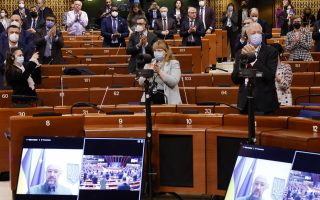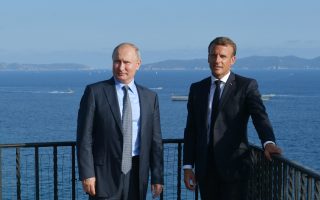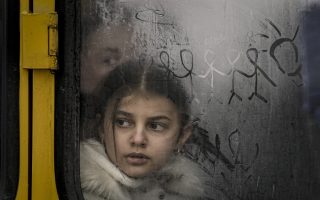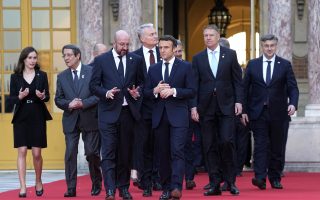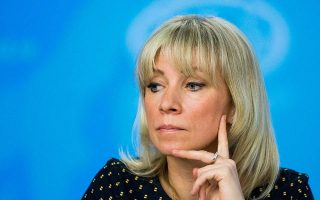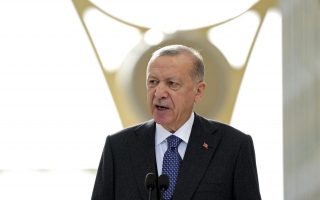The Grand Master and Catherine the Great
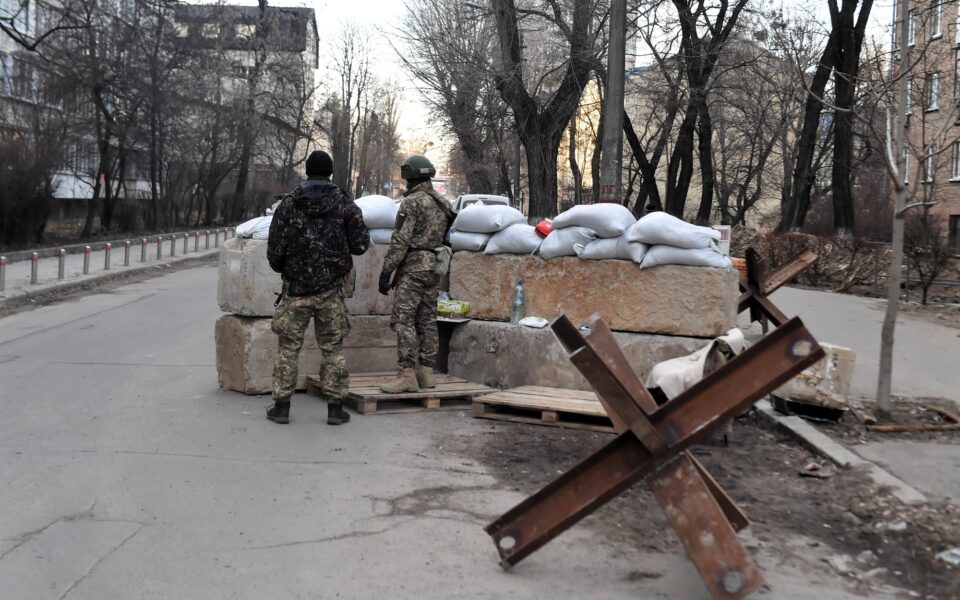
On International Women’s Day, one’s thoughts turn to wives, mothers, working women. Vladimir Putin chose to sing the praises of Catherine the Great. His speeches are a delirious immersion in the magnificence of the Russian nation – from the czars through Lenin to the Great Patriotic War – and the historical injustices it has suffered.
The inhabitants of Kyiv are trapped in their shelters day and night by the Russian tanks. Putin is trapped in his zero-sum reading of Russian destiny, condemning two nations to relive dark pages from their history. And history, as Hegel wrote, “is not the soil in which happiness grows,” for “periods of happiness are the blank pages in history.”
Europe’s greatest post-1945 achievement was freeing itself from the tyranny of its history. For centuries prior to that, hardly a generation of Europeans had not known war. Post-war Europe refused to accept nationalist wars as its inescapable destiny. Instead, it devised supranational institutions of European unification which would make war in Europe a thing of the past. This liberation from the historical determinism of war was not founded on a rejection of history, but rather on a profound (and guilty) awareness of the continent’s dark past. “European Union may be a response to history, but it can never be a substitute,” wrote Tony Judt in his monumental “Postwar.”
The basis for peaceful coexistence since 1945 has been the inviolability of borders. Not because they were drawn wisely and justly, but for precisely the opposite reason. Because there can be no escape from the endless population movements, wars and brutality that is the history of Europe if the ghosts of irredentism and revisionism rise up again.
In July 2021, Putin published a paper titled “On the Historical Unity of the Russians and Ukrainians.” Like an abusive paranoid partner, he’d rather destroy Ukraine than let it leave. His obsessively one-sided reading of national history sacrifices the collective prospect of a peaceful life to avenge distant defeats of an imaginary past.
Ukraine’s European perspective itself was a provocation to Putin, because it spotlighted the backwardness of his own autocratic, nationalist system
Putin has provided the West with the adversary it lacked. Europe put wars of conquest behind it in 1945, then totalitarianism in 1989. Putin’s invasion has breathed new life into both, reminding us that in a Europe wont to expend its energies on the narcissism of minor differences, the fight for democracy and peace has still to be won. As long as Putin continues to gag dissidents, arrest demonstrators, and flood the media with regime-serving lies, it will serve as a sharp reminder to Europe of the foundational and existential reason for European unity.
What a formidable chess player Putin is. With a single move, he has successfully reinvigorated NATO, united Europe against him, provided new impetus to complete Europe’s common defense, made fools of all his friends (from Trump to Le Pen to Salvini and his Greek admirers), justified traditional anti-Russian prejudices, and transformed a neighboring “brotherly” state into an eternal foe. And all that while destroying the Russian economy, turning the country into a pariah state, and mortifying all those compatriots whose judgment and humanity remains intact. That a large part of Russian society supports this war shows how dangerous the blindness of historicism is, especially when accompanied by the full arsenal of propaganda and repression available to a neo-totalitarian state.
The invasion isn’t just an expansionist war. Over the last three decades, Russia has experienced the anticipation that it could evolve into a free society. Its decoupling from the West (a deliberate decision and an unavoidable consequence of sanctions) will orient Russia towards the autocratic systems of the East. From now on, it will compare itself with (and rely for its economic survival on) China, a technologically and economically powerful but authoritarian state. This de-Westification will last at least as long as Putin does. Ukraine’s European perspective itself was a provocation to Putin, because it spotlighted the backwardness of his own autocratic, nationalist system. If this tragic war results in a divided Ukraine, a new wall will go up in Europe, and the continent will again know how different it is to live as a free citizen and as a subject of tyranny.
George Pagoulatos is a professor at the Athens University of Economics and Business, visiting professor at the College of Europe, and director general of the Hellenic Foundation for European & Foreign Policy (ELIAMEP).
